Writing worksheets activities for Ages 3-8
8 filtered results
-
From - To
Discover engaging writing worksheets and activities designed for children aged 3-8 on our website! Our resources support early literacy development and make learning fun. From tracing letters and practicing their names to crafting simple sentences, our worksheets cater to various skill levels, ensuring that every child can thrive. Each activity is crafted to enhance fine motor skills while fostering creativity and imagination. Parents and educators can easily access these printable worksheets to strengthen writing skills at home or in the classroom. Start your young learners on a writing adventure today and watch their confidence soar as they express themselves on paper!
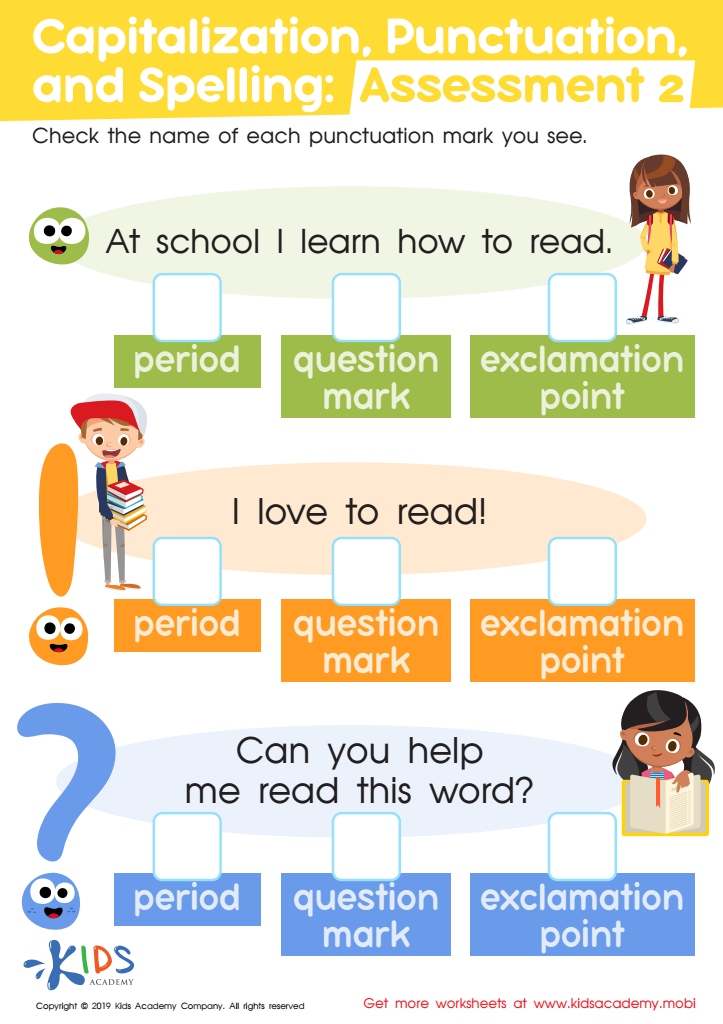

Capitalization. Punctuation. Spelling: Assessment 2 Worksheet
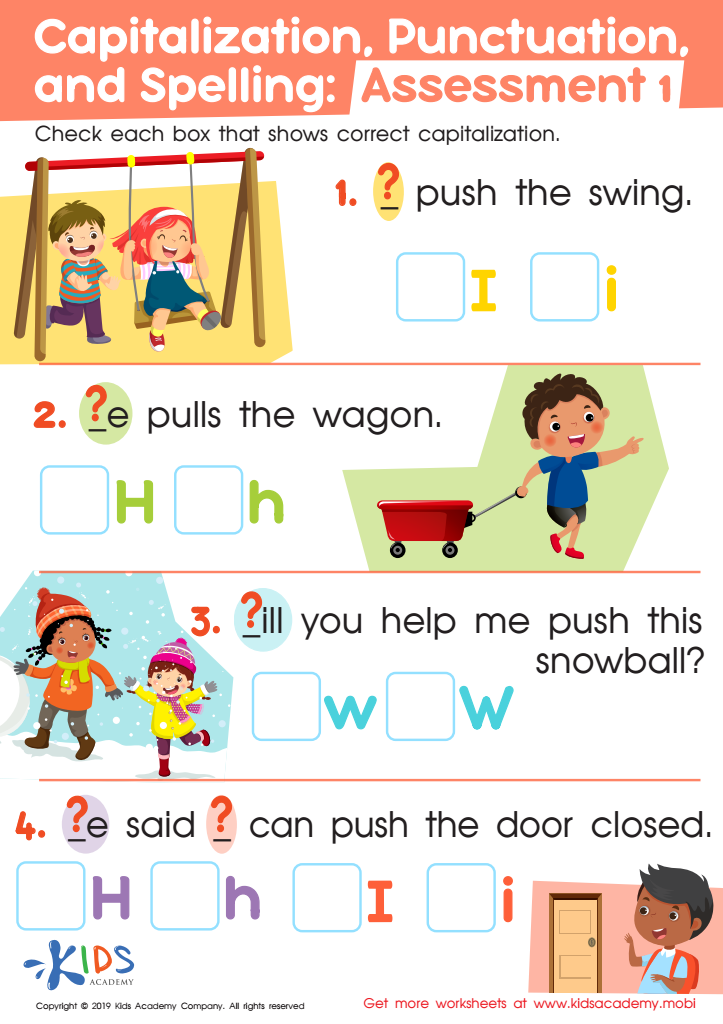

Capitalization. Punctuation. Spelling: Assessment 1 Worksheet
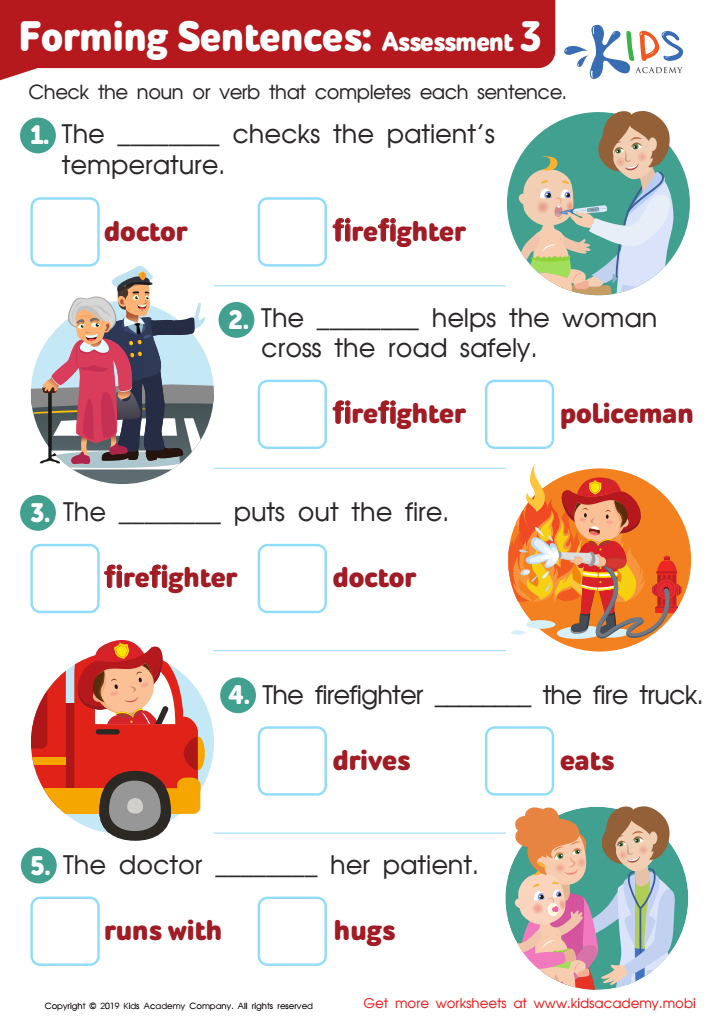

Forming Sentences: Assessment 3 Worksheet
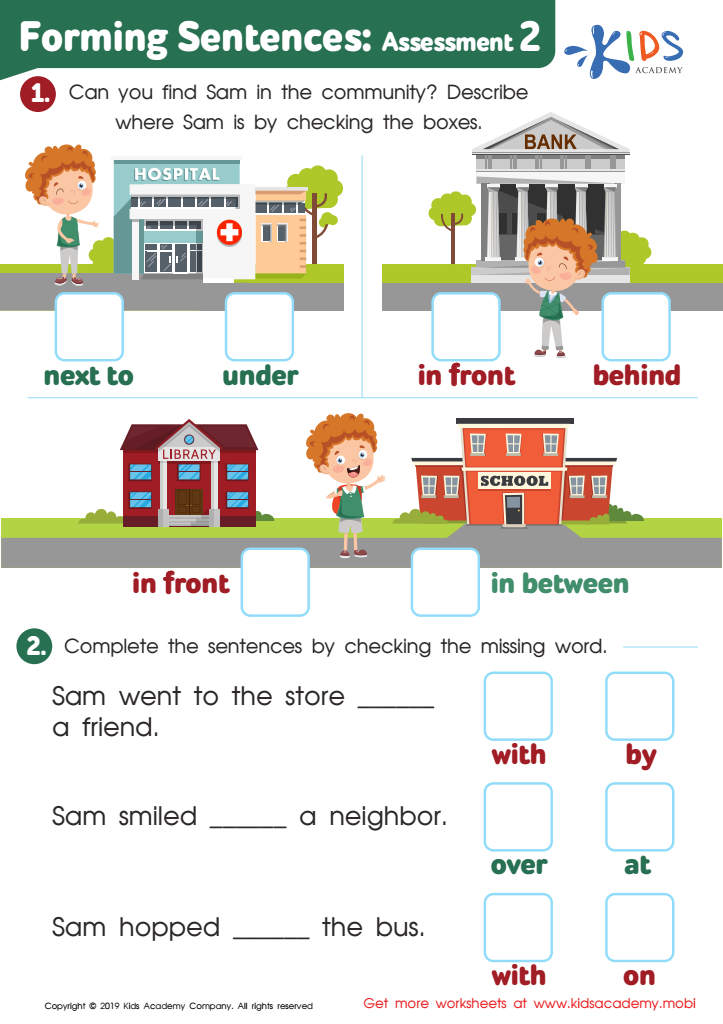

Forming Sentences: Assessment 2 Worksheet
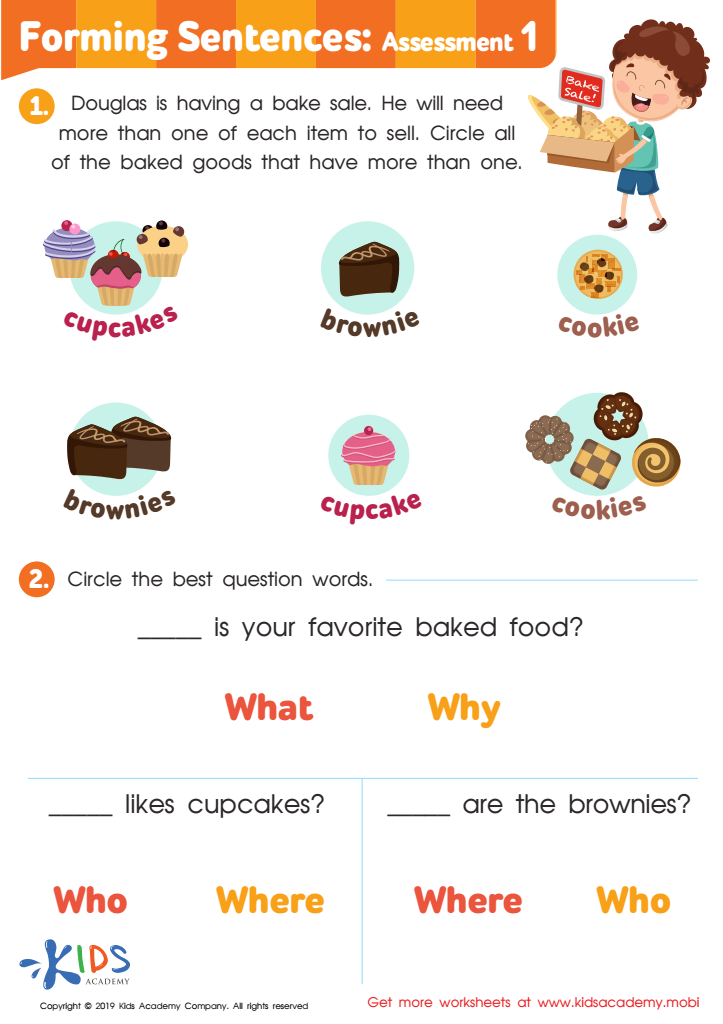

Forming Sentences: Assessment 1 Worksheet
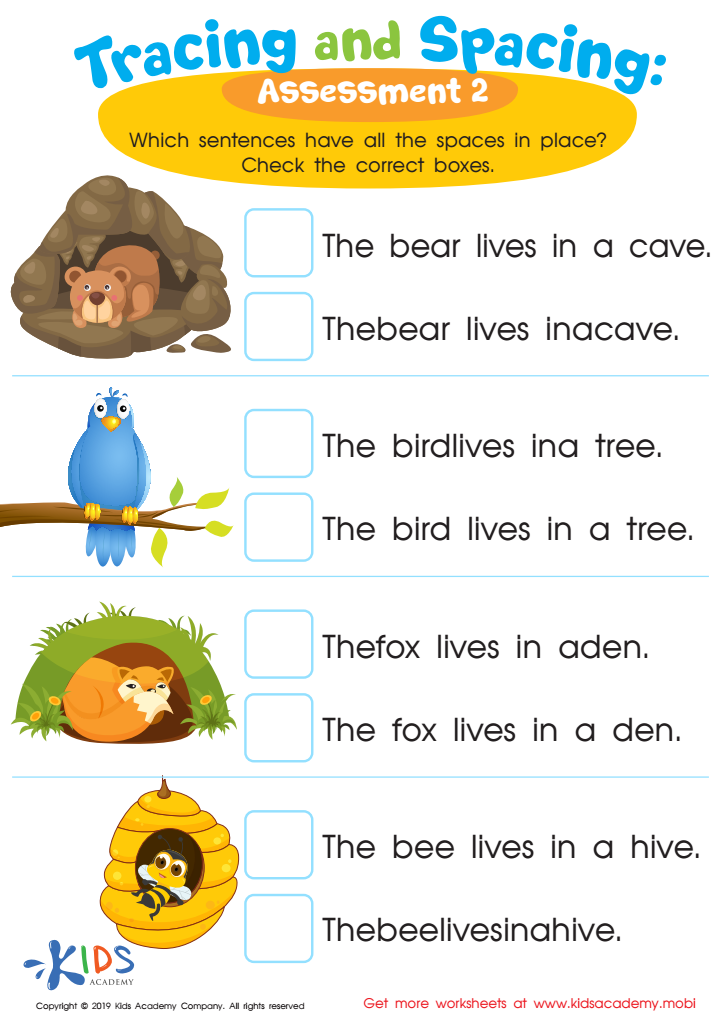

Tracing and Spacing: Assessment 2 Worksheet
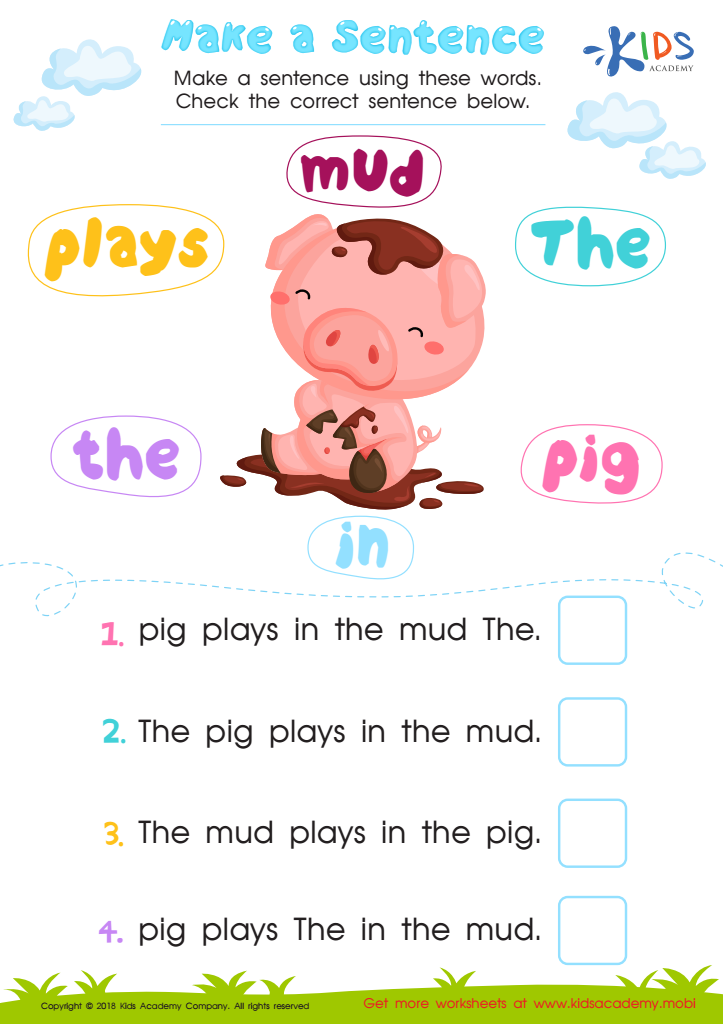

Assessment: Make a Sentence Worksheet
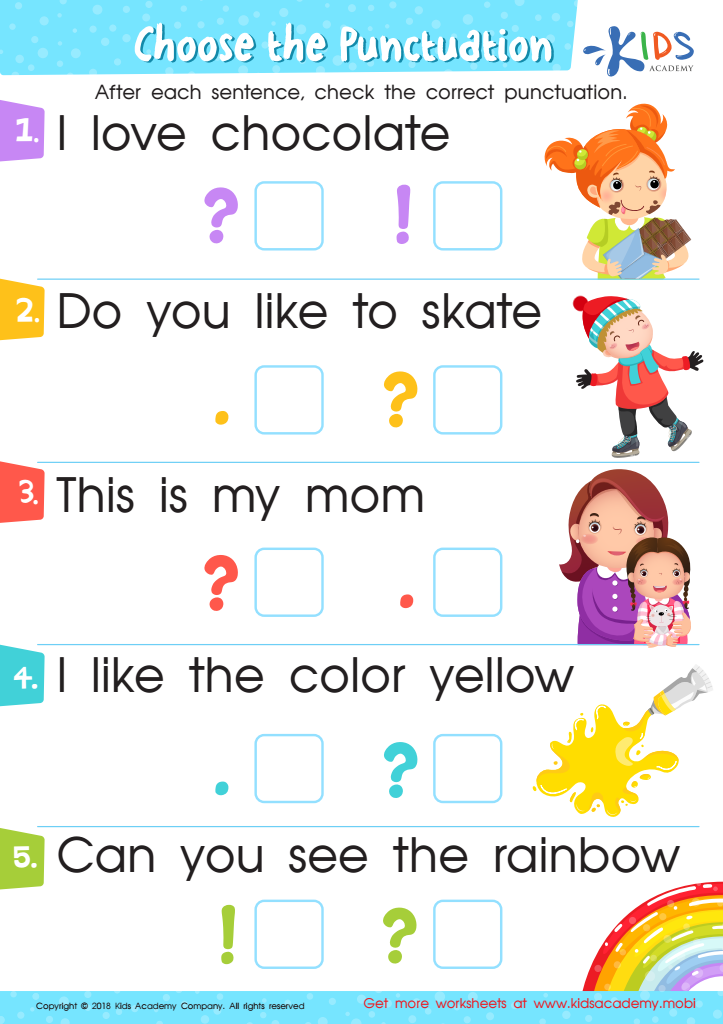

Choose the Punctuation: Assessment Worksheet
Writing activities for children ages 3-8 are crucial for their development and learning journey. At this formative age, children begin to express their thoughts, feelings, and ideas in written form, laying the foundation for effective communication skills. Engaging in writing activities enhances their fine motor skills, critical for tasks such as holding a pencil or forming letters. It also boosts cognitive development, as children learn to organize their thoughts and articulate them clearly.
Furthermore, writing activities encourage creativity and imagination, allowing children to develop their unique voices and perspectives. They foster a sense of accomplishment and build self-esteem as children see their ideas materialize on paper. Additionally, writing nurtures literacy skills, helping children learn spelling, vocabulary, and grammar in a fun and meaningful context.
For parents and teachers, incorporating writing activities into children’s routines is essential for encouraging a love of learning. It also nurtures important social skills, as collaborative writing projects can enhance teamwork and communication among peers. Ultimately, prioritizing writing activities at this age supports overall intellectual and emotional growth, laying the groundwork for future academic success and a lifelong ability to express oneself confidently through writing.
 Assign to My Students
Assign to My Students


















